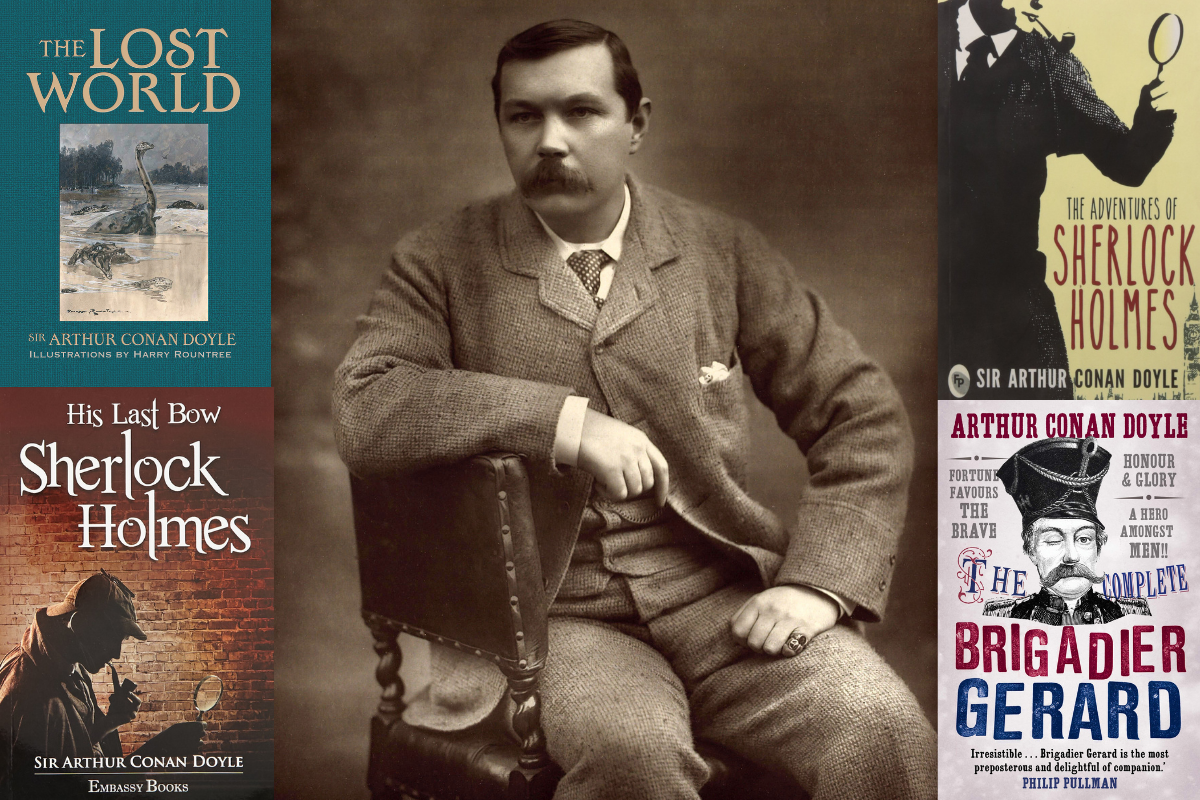
May 22 marks the birth anniversary of perhaps the greatest crime fiction writers of all time. Or well, definitely the creator of the most famous detective in literature. Sir Arthur Conan Doyle, the man who created Sherlock Holmes was born on this day in 1859.
Sherlock Holmes and his sidekick Dr. Watson (who deserves a little more credit than he is actually given – after all it is through his storytelling skills that we get to know Holmes) are a cultural phenomenon reinforced over and over by different adaptations, both on paper and on screen. Your introduction to Sherlock Holmes might have come via Conan Doyle’s writing or by the brilliant BBC adaptation starring Benedict Cumberbatch, but it all started in 1887, when A Study in Scarlet was published and the world in general was never the same!
Sherlock Holmes of course was brilliant. But his creator was quite something. And no we are not just referring to his writing. Conan Doyle was an extremely versatile person with a variety of skills in different walks of life. So on the occasion of his birthday, here are 7 facts that you might not know about the man who gave us Sherlock Holmes.
1. Humble beginnings: A general physician
Influenced by a young doctor his mother had taken in to manage expenses, Conan Doyle decided to train as a physician. However, a rocky start to his practice and a near bankruptcy propelled him into writing fiction during his free time. His first Holmes story, A Study in Scarlet was published in 1887 and the immortal detective was introduced to the world.
2. An inspiration for Sherlock Holmes: Professor Joseph Bell
Over the years, there have been various names with regard to the man who inspired the ways of Sherlock Holmes. Doyle credited and thanked his university professor, Joseph Bell, whose ideas of deduction and observation helped him in creating the scientific detective.
3. Sir Arthur Conan Doyle: A prolific writer
Even though Doyle is now most known for his stories featuring Sherlock Holmes, he also has a number of fantasy, historical and science fiction stories, that are equally entertaining, to his credit. As the popularity of his detective and people’s obsession with him increased, he hoped (quite erroneously) that the general public would remember him for his more serious literature and not for just his “commercial” work!
4. Conan Doyle and his detective: A love-hate relationship
As Sherlock Holmes’ popularity swelled and scaled new heights, Conan Doyle realised he had created something that was quickly getting out of his control. Every short story he wrote required an impossible plot and meticulous handling of clues—it was a time taking and extremely tiresome exercise. He grew tired of his creation and decided to kill Holmes off, an activity he justified as self-defence and famously said, “If I had not killed him, he would certainly have killed me.”
5. A leaf out of Sherlock Holmes skills booklet: Doyle investigates
While Holmes is remembered as the upholder of the truth, it is his creator, in our opinion, who deserves this place. A champion of the oppressed, Conan Doyle became a crime investigator himself and personally took interest at many cases in favour of the people he felt were not given justice. In a Holmesian fashion, he used his deductive skills and helped overturn initial guilty judgements of several people including one of a half-British, half-Indian lawyer who was accused of a series of animal mutilations. Some of these real life cases have become a part of media frenzy and have books written and shows credited to them.
6. A life well lived: The many adventures of Conan Doyle
Conan Doyle was a man of multiple interests. When the Boer War started, Doyle, 40 at the time and a mighty successful author enlisted as a doctor and offered his services. He subsequently published The Great Boer War, a book about his experiences while serving as a doctor. He also ran for Parliament, twice, however, was never elected.
7. Later life: A turn to spiritualism
For most of his life, Conan Doyle was fascinated with paranormal activities and spiritualism—a belief that communication with the spirits of the dead is possible through a medium. By the end of his life, he devoted a lot of his time and money sincerely to his work in this field, often calling it “the most important thing in the world.”
